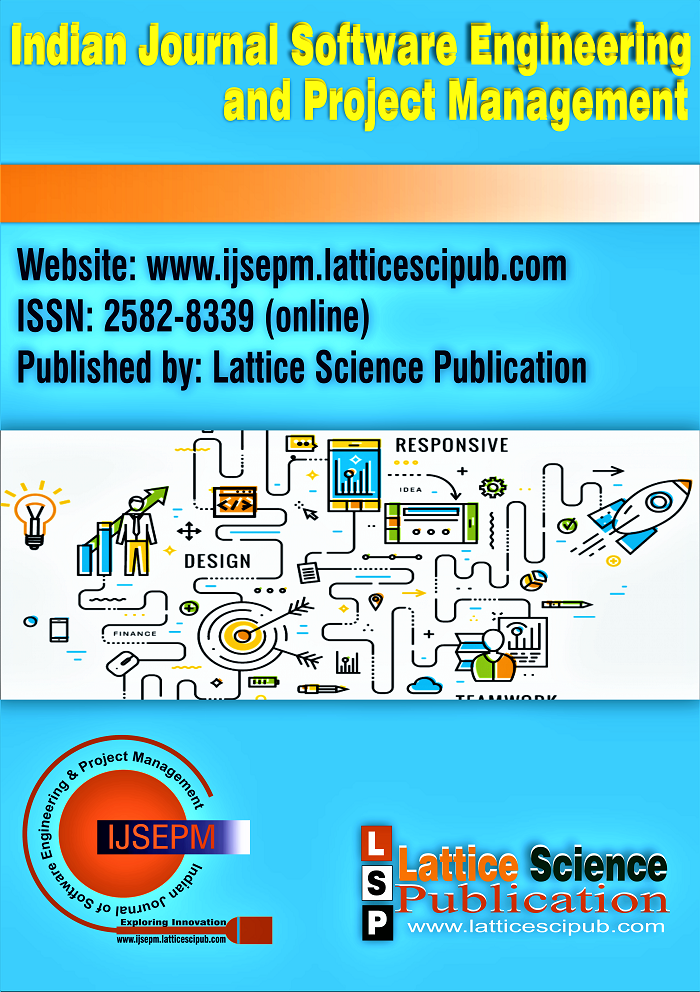Artificial Intelligence in Project Management: A Study of The Role of Ai-Powered Chatbots in Project Stakeholder Engagement
Main Article Content
Abstract
Artificial Intelligence (AI) is increasingly becoming a cornerstone in the evolution of project management. Its capabilities extend beyond simple automation, fostering improved decision-making processes and enhancing collaborative efforts. Among the various AI tools available, chatbots stand out as particularly transformative for project management. This study delves into the role of AI-powered chatbots in project stakeholder engagement, a critical aspect of successful project management. Chatbots, powered by sophisticated AI algorithms, can provide continuous support and interaction with project stakeholders. This is particularly vital in managing complex projects where continuous communication and prompt responses can significantly influence project success. The study examines how these AI-driven chatbots facilitate stakeholder engagement, focusing on key benefits such as improved communication, increased stakeholder satisfaction, and better overall project outcomes. Through a detailed analysis, we have identified that chatbots enhance communication by offering stakeholders immediate, personalized responses, thereby reducing response times and improving the efficiency of information exchange. This immediacy and personalization contribute to heightened stakeholder satisfaction, as stakeholders feel their concerns and queries are addressed promptly and effectively. Furthermore, our findings suggest that these improvements in stakeholder engagement directly correlate with enhanced project outcomes, including better adherence to timelines, improved project quality, and increased likelihood of meeting project objectives. However, the deployment of chatbots in project management is not without its challenges. One significant hurdle is the need for advanced natural language processing (NLP) capabilities. Effective chatbots must understand and process complex human language nuances to interact effectively with stakeholders. Another challenge observed is the potential for chatbots to become disruptive or annoying. This can occur when chatbots fail to provide relevant or accurate information, or when their interaction style does not align with stakeholder expectations. In conclusion, AI-powered chatbots hold substantial promise for revolutionizing stakeholder engagement in project management. While they present remarkable benefits in improving communication, stakeholder satisfaction, and project outcomes, there are challenges that need to be addressed. These include enhancing NLP capabilities and fine-tuning the interaction style of chatbots to suit diverse stakeholder groups. With these improvements, AI-powered chatbots could significantly contribute to the success of various projects, marking a new era in project management where AI plays a pivotal role in stakeholder engagement and overall project success.
Downloads
Article Details

This work is licensed under a Creative Commons Attribution-NonCommercial-NoDerivatives 4.0 International License.
How to Cite
References
Crawford, J., Carpenter, J., & Jennings, N. R. (2020). Chatbots and artificial intelligence in project management. Project Management Journal, 51(1), 5-17.
Missonier, S., & Asgari, S. (2019). Chatbots in project management: Opportunities and challenges. International Journal of Project Management, 37(8), 1170-1180.
"The Impact of Artificial Intelligence on Project Management" by Erik Dörner, Daniel Moldenhauer, and Martin Becker (2022)
"Chatbots in Project Management: A Systematic Literature Review" by Aysu Bayrak and Cevdet Akça (2021)
"Artificial Intelligence in Project Management: Trends and Future Directions" by Hongbo Yu, Jun Zhang, and Xiaohong Li (2020)
"The Role of Artificial Intelligence in Project Stakeholder Engagement: A Literature Review" by Peter W. G. Morris and Richard W. Bleischwitz (2019)
"Artificial Intelligence for Project Management: A Multidisciplinary Perspective" by Andreas Herrmann, Thomas S. A. Demel, and Christoph Heinze (2018)
"Chatbots in Project Management: A Practical Guide for Implementation and Adoption" by Shlomi Ben-David, Efi Arazi, and Hagit Raemer (2022)
"The Ethics of AI-Powered Chatbots in Project Management" by David Dawson and Christine Robson (2021)
"AI-Powered Chatbots for Project Management: A Case Study Analysis" by Michael A. Vermette and James A. Fitz-Gerald (2020)
"The Impact of AI-Powered Chatbots on Project Stakeholder Perceptions and Engagement" by Jessica S. Hegland and David L. Johnson (2019)
"A Framework for Evaluating AI-Powered Chatbots in Project Management" by Mark C. Keil and David K. Henderson (2018)
Arora, S. K. (2023). Project Failure: A Bad Communication (Case Study). In International Journal of Management and Humanities (Vol. 9, Issue 5, pp. 5–7). https://doi.org/10.35940/ijmh.e1553.019523
El Khatib, M. M., & Alzouebi, K. (2021). Collaborative Business Intelligence A Case Study of the Dubai Smart City Strategy. In International Journal of Innovative Technology and Exploring Engineering (Vol. 10, Issue 4, pp. 83–90). https://doi.org/10.35940/ijitee.d8496.0210421
Putri, M., & Rohimah, Z. (2020). Blueprint of Enterprise Architecture on Project Management Information Systems using TOGAF in ERP Provider Company. In International Journal of Recent Technology and Engineering (IJRTE) (Vol. 8, Issue 6, pp. 3852–3857). https://doi.org/10.35940/ijrte.f9407.038620
Islam, M., Mohamed, S. F., Mahmud, S. H., M, A. K. A., & Saeed, K. A. (2020). Towards A Framework for Development of Operational and Maintenance Cost Model of Highway Project in Malaysia. In International Journal of Management and Humanities (Vol. 4, Issue 5, pp. 89–95). https://doi.org/10.35940/ijmh.e0530.014520
Sunkara, S., & Hayath, S. (2023). Battery Thermal Management System for Electric Vehicles. In Indian Journal of Software Engineering and Project Management (Vol. 3, Issue 1, pp. 1–6). https://doi.org/10.54105/ijsepm.a9017.013123





